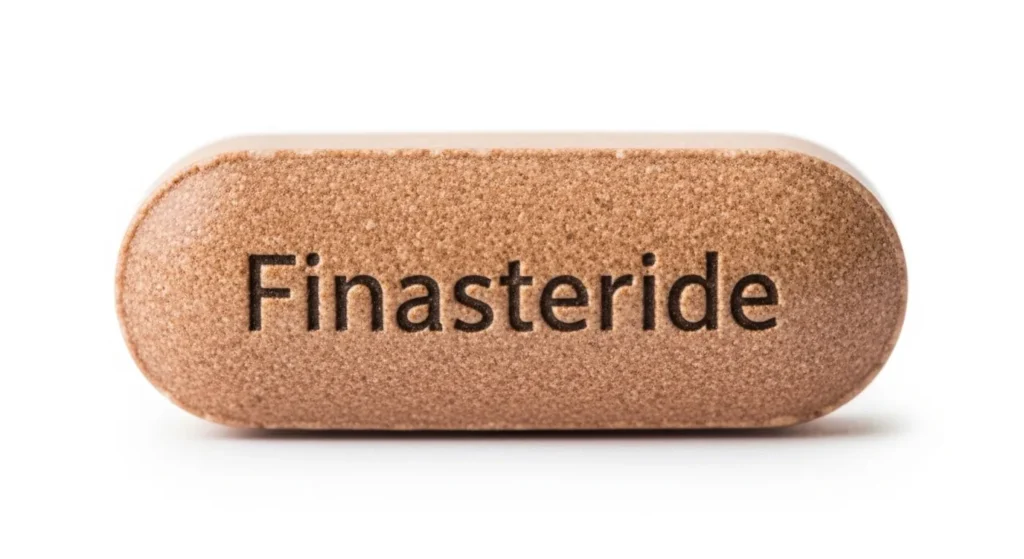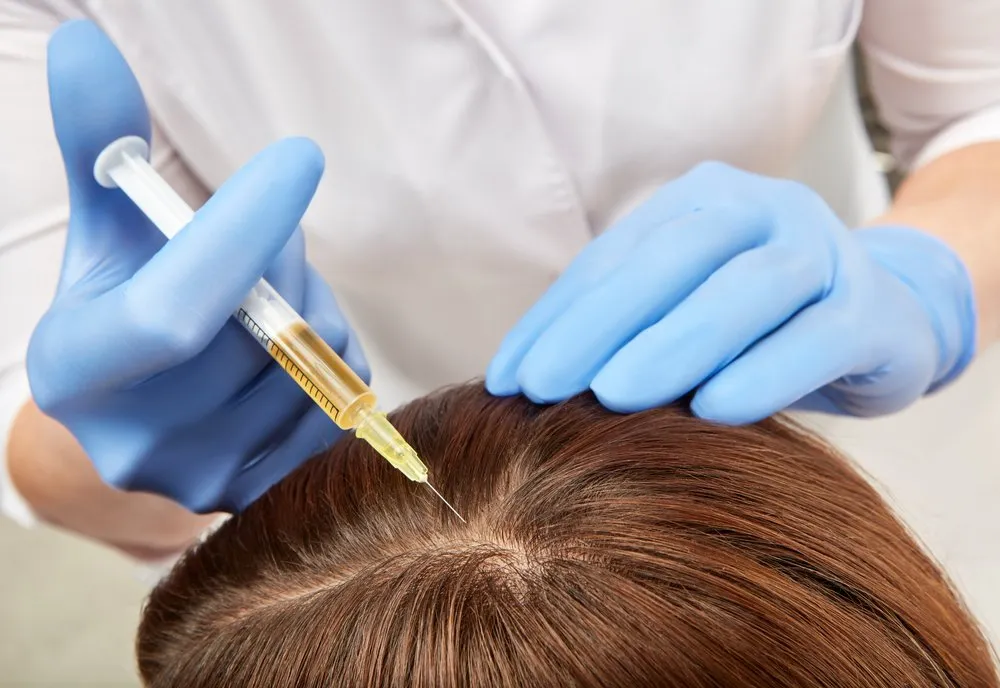Are you noticing brittle fingernails and hair loss happening at the same time? These two symptoms may be more connected than you think. In this post, we’ll explore the root causes of brittle nails and hair shedding, from vitamin deficiencies to hormonal imbalances.
You’ll learn the signs to watch for, how to get diagnosed, and the best treatments to restore your health. With expert insights and real solutions, this guide helps you take control and get the right support.
Understanding the Link Between Brittle Nails and Hair Loss

Are Hair and Nails Connected? A Biological Overview
Hair and nails are both made of keratin, a fibrous protein that gives them strength and structure. Because they share similar nutritional and biological requirements, changes in their appearance often reflect what’s going on inside your body.
If your body isn’t getting enough of the right nutrients or is dealing with a hormonal imbalance, both your hair and nails can show signs of damage — often at the same time.
Why You Might Experience Both Issues Simultaneously
When hair and nail health decline together, it usually indicates an internal issue such as:
- Vitamin or mineral deficiencies
- Endocrine or thyroid dysfunction
- Chronic stress or autoimmune conditions
It’s your body’s way of saying something deeper needs attention.
Symptoms to Watch For Beyond Hair and Nail Changes
- Persistent fatigue
- Skin dryness or rashes
- Sudden weight gain or loss
- Irregular menstrual cycles (in women)
- Feeling cold or sluggish
These additional signs can help pinpoint whether a nutritional, hormonal, or autoimmune issue is at play.
Common Causes of Brittle Fingernails and Hair Loss
Nutritional Deficiencies
Several essential nutrients play a role in keeping hair and nails strong. When your body is low on these, signs like hair thinning and brittle nails often emerge:
- Iron: Low ferritin levels can cause hair shedding and nail ridges.
- Zinc: Important for cell repair and keratin production.
- Biotin (Vitamin B7): Commonly linked with hair and nail strength.
- Vitamin D: Deficiency is associated with hair loss, especially telogen effluvium.
- Protein: Inadequate intake affects keratin formation.
Hormonal Imbalances
Hormones play a central role in regulating hair growth cycles and nail regeneration. Common hormonal causes include:
- Thyroid Disorders (Hypothyroidism or Hyperthyroidism)
- Polycystic Ovary Syndrome (PCOS)
- Menopause or perimenopause
Symptoms often appear gradually, with increased hair shedding and nail brittleness over time.
Chronic Stress and Anxiety
Stress triggers the release of cortisol, which can disrupt normal hair cycles and reduce blood flow to the nail matrix. Over time, this leads to weakened nails and hair fall.
Pro Tip: Stress-related hair loss often appears 2–3 months after a major emotional or physical stressor (e.g., surgery, illness, trauma).
Autoimmune Diseases
When the immune system mistakenly attacks healthy tissue, it can damage hair follicles and nail beds.
- Alopecia areata: Sudden hair loss in patches.
- Lupus: Hair thinning, brittle nails, and rashes.
- Psoriasis: Nail pitting, scaling, and scalp plaques.
Side Effects of Medications or Treatments
Certain medications can affect keratin-producing cells, including:
- Chemotherapy
- Isotretinoin (for acne)
- Antidepressants
- Birth control pills
Always consult your doctor before making changes to prescribed medications.
Overuse of Hair and Nail Products
Frequent exposure to harsh chemicals—such as nail polish remover, gels, hair dyes, and heat tools—can weaken the structural integrity of both hair and nails over time.
How to Diagnose the Root Cause
When to See a Dermatologist or Trichologist
If you notice persistent brittle nails and hair loss, especially alongside other symptoms, it’s time to seek a professional evaluation. Early diagnosis improves treatment outcomes significantly.
Recommended Blood Tests for Hair and Nail Health
Ask your healthcare provider about:
- CBC (Complete Blood Count)
- Ferritin & Iron levels
- TSH, T3, T4 (thyroid panel)
- Vitamin D and B12
- Zinc and biotin levels
- ANA (for autoimmune screening)
Importance of Medical History and Lifestyle Assessment
Your doctor may also inquire about:
- Diet patterns
- Recent illnesses or surgeries
- Menstrual irregularities
- Mental health status
- Use of supplements or hair/nail treatments
Effective Treatments for Brittle Nails and Hair Loss
Nutritional Supplements
Based on your test results, supplements may be prescribed:
- Biotin (2,500–5,000 mcg daily)
- Iron (only if deficient; under supervision)
- Omega-3 fatty acids
- Multivitamins with B-complex and zinc
Reminder: Always consult a healthcare provider before starting any supplement regimen.
Topical and Oral Medications
- Minoxidil: Stimulates hair regrowth.
- Finasteride: For male-pattern hair loss.
- Spironolactone: For hormonal acne and hair loss in women.
- Thyroid hormone replacement (if hypothyroidism is diagnosed)

Lifestyle Changes That Help
- Improve your sleep quality
- Reduce sugar and processed foods
- Incorporate anti-inflammatory foods
- Use gentle hair and nail care products
- Practice stress-reducing techniques like yoga or journaling
Protective Practices for Nails and Hair
- Limit heat styling to 1–2 times a week
- Wear gloves when cleaning or washing dishes
- Use a nail strengthener or keratin-based treatment
- Trim nails and hair regularly to prevent breakage
Natural and Home Remedies Worth Trying
Essential Oils and Scalp Massages
- Rosemary oil: Improves circulation and encourages growth.
- Tea tree oil: Helps with nail fungus or scalp flaking.
- Massage with warm coconut oil to strengthen cuticles and follicles.
DIY Nail Soaks and Hydration Techniques
- Olive oil soak: Restores nail flexibility.
- Epsom salt + lemon water soak: Strengthens and brightens.
- Use cuticle oil nightly for moisture retention.
Foods That Support Keratin Production
- Eggs (rich in protein and biotin)
- Salmon (omega-3 fatty acids)
- Sweet potatoes (beta-carotene)
- Spinach and leafy greens (iron and folate)
Expert Advice and Clinical Options
When to Consider Hair Transplant or PRP Therapy
If hair thinning progresses despite treatment, options like FUE hair transplant or Platelet-Rich Plasma (PRP) Therapy can help restore density.

Nail Strengthening Treatments by Dermatologists
- Prescription nail lacquers
- Antifungal treatments
- Medical-grade keratin boosters
FAQs About Brittle Nails and Hair Loss
Can thyroid issues cause both hair and nail problems?
Is biotin safe and effective for everyone?
How long before I see improvement after starting treatment?
Can stress really cause brittle nails and hair loss?
When to Worry: Red Flags That Require Medical Attention
- Hair falling out in clumps or bald patches
- Nails separating from the nail bed
- Yellowing, thickening, or ridging of nails
- Sudden fatigue, mood swings, or skin pigmentation changes
Don’t delay seeking help — early intervention is key.
If you’re dealing with brittle fingernails and hair loss, don’t guess — get a personalized diagnosis and treatment plan. Book a consultation with Dr. Rana Irfan, an ABHRS-certified hair restoration specialist in Islamabad, to restore your hair and nail health with confidence.
